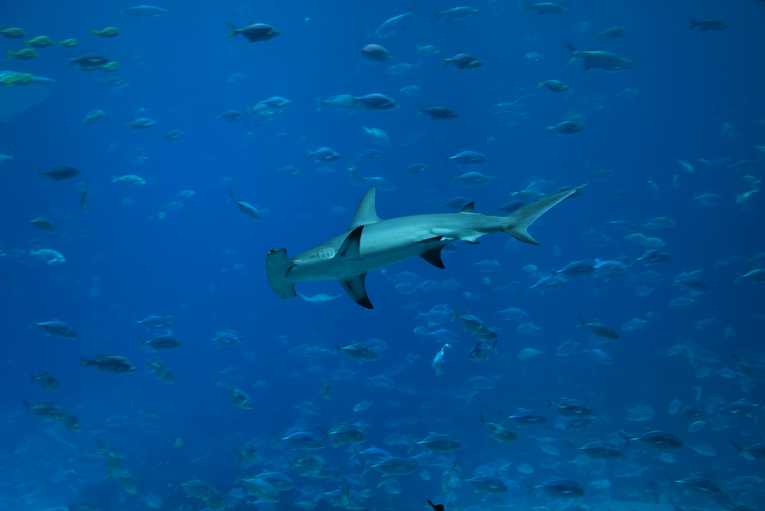Chile has become the latest country to ban shark-finning in its waters, winning praise from conservationists.
Shark fins are usually sold to the Far East, where they are made into shark fin soup. The toll on some of the ocean's biggest and baddest predators can be terrible - they are often de-finned before being dumped, still alive, back into the sea. In 2008, Chile, with its long Pacific Ocean coastline, exported 36 tons of shark fins to Hong Kong.
Now, President Sebastian Pinera has signed a law banning the practice after work with Pew Environment Group. Any sharks landed must now be whole, cutting down on the numbers maimed and left to die at sea.
Chilean waters are a rich habitat for sharks with 53 species found off the country's 4,000 mile coast. Among the most endangered sharks are shortfin mako, and bigeye thresher.
Pew Environmental says as many as 73 million sharks die each year for their fins. America banned the practice this year. The Marshall Islands and the U.S. territories of Guam and the Northern Marianas Islands have criminalised the possession, sale and distribution of fins.
Last month, the Bahamas and Honduras created safe havens with no fishing zones, like those earlier established in Palau and the Maldives. Live sharks can be worth more in tourist dollars than their fins says Pew Environment Group.
Chile has also promised to work to avoid accidental shark catches from tuna and swordfish gear.
Matt Rand, director of global shark conservation for the Pew Environment Group, said:
"Through its new law to ban shark finning, Chile has become a leader in the conservation of some of the ocean's most important and imperilled species. Up to 73 million sharks are killed every year around the globe primarily for their fins, which are most often consumed in Asia in shark fin soup. This unsustainable trade is fuelled by shark finning, the wasteful act of slicing off the fins and discarding the body at sea."
Top Image Credit: © johnstublar










